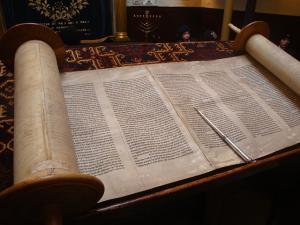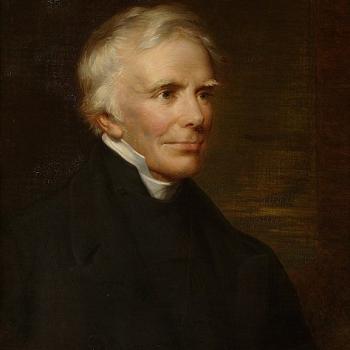Collin Brooks runs the YouTube channel, Resisting the Winds: dedicated to helping Christians resist every wind and wave of false doctrine. “And he gave the apostles, the prophets, the evangelists, the shepherds and teachers, to equip the saints for the work of ministry, for building up the body of Christ, 13 until we all attain to the unity of the faith and of the knowledge of the Son of God, to mature manhood,[e] to the measure of the stature of the fullness of Christ, so that we may no longer be children, tossed to and fro by the waves and carried about by every wind of doctrine, by human cunning, by craftiness in deceitful schemes” (Ephesians 4:11-14).
*****
This is a reply to two of his videos: “Matt Fradd and Gary Machuta [sic] Did NOT Debunk Sola Scripture[sic]” (7-28-20) and “An Eastern Orthodox Priest on Sola Scriptura” (12-10-20). Collin’s words will be in blue.
Having debated this topic times without number, and having written the book, 100 Biblical Arguments Against Sola Scriptura (Catholic Answers, 2012), I am interested here, as always, to see what biblical passages are produced that supposedly prove sola Scriptura. I will focus in on that alone.
I would technically agree with the phrase, “the norm that sets all norms”, and all that’s saying is that, the doctrine of Scripture alone: at least one of its more important premises, is that Scripture is the highest authority in our life, not the only authority, but the highest authority, and because it’s the highest, that means all other authorities derive their authority from Scripture. So Scripture creates other authorities, and Scripture defines other authorities, and Scripture checks other authorities. [5:35-6:05]
The problem I have with this is that it doesn’t mention infallibility. Infallibility is a lesser characteristic than inspiration, which Scripture alone possesses. Catholics contend that there are carefully defined instances of the exercise of infallible authority other than Scripture: from the Church, sacred apostolic tradition, ecumenical councils, and popes. In other words, when sola Scriptura is defined in this way, as it usually is, it precludes the infallibility of these other entities. Therefore, if Scripture can be shown to teach the infallibility of anything other than Scripture, sola Scriptura is then shown to be a false doctrine.
Collin is fond of Reformed Baptist apologist James White. He cites two of his debates underneath this video. White defines sola Scriptura as I have described it:
The doctrine of sola scriptura, simply stated, is that the Scriptures alone are sufficient to function as the regula fidei, the infallible rule of faith for the Church. (The Roman Catholic Controversy, Minneapolis: Bethany House Publishers, 1996, 59; the original was all italics)
Reformed Protestant Keith A. Mathison concurs:
Scripture . . . is the only inspired and inherently infallible norm, and therefore Scripture is the only final authoritative norm. (The Shape of Sola Scriptura, Moscow, Idaho: Canon Press, 2001, 260)
So does the late Protestant apologist Norman Geisler:
What Protestants mean by sola scriptura is that the Bible alone is the infallible written authority for faith and morals. (Roman Catholics and Evangelicals: Agreements and Differences, Grand Rapids, Michigan: Baker Books, 1995, 178; co-author, Ralph E. Mackenzie)
Lutheran pastor Jordan Cooper agrees as well:
Sola Scriptura . . . recognizes that there are many authorities, but Scripture is the sole infallible authority, so Scripture has preference over all other authorities we might have. (“An Explanation of Sola Scriptura“, 3-11-19)
As does Baptist pastor Gavin Ortlund:
Sola Scriptura has always been maintained as the view that the Bible is the only infallible rule for theology. (“Sola Scriptura DEFENDED”, 12-15-20).
The above is the standard definition of sola Scriptura. Collin neglected to include the crucial variable of infallibility in it: which denies infallibility to anything else. No one is arguing that Scripture isn’t unique, the sole inspired revelation, the written Word of God or that it is materially sufficient. The relevant question in this debate is: “is Scripture the only infallible authority in Christian life and theology?” And secondly: where is such a doctrine taught in the Bible? If it’s not in the Bible, it is clearly false, because it’s a view that has to do fundamentally with the Bible. If it comes from outside the Bible, it would be self-contradictory and self-defeating.
Collin states that Gary Michuta’s definition of sola Scriptura is a “bad definition” [6:43-46]. I would argue that his definition was deficient, per the above. He then argues that Scripture is the only God-breathed, inspired document. But this is again beside the point of the dispute because no one is denying that. The debate takes place on the level of real or alleged infallibility. But Collin hasn’t even mentioned that word in the first seven-and-a-half minutes of his video.
Collin claims that Catholics say there are no longer apostles. Technically, yes. But we teach that the bishops are the successors of the apostles.
They [the Scriptures] don’t tell us where else God has spoken, outside of things that all of us, Catholics and Protestants alike, agree are gone. [9:02-9:10]
I disagree. The Bible twice teaches that there is such a thing as infallible Church authority. The Jerusalem Council, described in Acts 15 did precisely what Collin claims nothing but the Bible has the authority or capability to do. Apostles (including Paul, Peter, and James) and elders got together to resolve a controversy over the place and function of circumcision, which foods were clean, and in a broader sense, how much Mosaic Law would apply to Christians. Here’s what it decided:
Acts 15:28-29 (RSV) For it has seemed good to the Holy Spirit and to us to lay upon you no greater burden than these necessary things: [29] that you abstain from what has been sacrificed to idols and from blood and from what is strangled and from unchastity. If you keep yourselves from these, you will do well. Farewell.
Here is the authority that this letter had, as seen in how Paul viewed it:
Acts 16:4 As they went on their way through the cities, they delivered to them for observance the decisions which had been reached by the apostles and elders who were at Jerusalem.
This is the universal and authoritative (and in this case, infallible) Church. A decision reached at Jerusalem was regarded as binding and in effect, “infallible” and was to be observed not just locally, but by Christians all through Asia Minor (Turkey), where Paul was preaching. This is essentially the equivalent of an ecumenical council.
1 Timothy 3:15 . . . the household of God, which is the church of the living God, the pillar and bulwark of the truth.
This may not seem compelling at first: just seven words at the end. But I believe that if we analyze it more deeply and think through it, that it provides a rock-solid argument for the infallibility of the Church. Here’s how I myself did that in my book, 100 Biblical Arguments Against Sola Scriptura (pp. 104-107, #82):
Pillars and foundations support things and prevent them from collapsing. To be a “bulwark” of the truth, means to be a “safety net” against truth turning into falsity. If the Church could err, it could not be what Scripture says it is. God’s truth would be the house built on a foundation of sand in Jesus’ parable. For this passage of Scripture to be true, the Church could not err — it must be infallible. A similar passage may cast further light on 1 Timothy 3:15:
Ephesians 2:19-21 . . . you are fellow citizens with the saints and members of the household of God, [20] built upon the foundation of the apostles and prophets, Christ Jesus himself being the cornerstone, [21] in whom the whole structure is joined together and grows into a holy temple in the Lord;
1 Timothy 3:15 defines “household of God” as “the church of the living God.” Therefore, we know that Ephesians 2:19-21 is also referring to the Church, even though that word is not present. Here the Church’s own “foundation” is “the apostles and prophets, Christ Jesus himself being the cornerstone.” The foundation of the Church itself is Jesus and apostles and prophets.
Prophets spoke “in the name of the Lord” (1 Chron 21:19; 2 Chron 33:18; Jer 26:9), and commonly introduced their utterances with “thus says the Lord” (Is 10:24; Jer 4:3; 26:4; Ezek 13:8; Amos 3:11-12; and many more). They spoke the “word of the Lord” (Is 1:10; 38:4; Jer 1:2; 13:3, 8; 14:1; Ezek 13:1-2; Hos 1:1; Joel 1:1; Jon 1:1; Mic 1:1, et cetera). These communications cannot contain any untruths insofar as they truly originate from God, with the prophet serving as a spokesman or intermediary of God (Jer 2:2; 26:8; Ezek 11:5; Zech 1:6; and many more). Likewise, apostles proclaimed truth unmixed with error (1 Cor 2:7-13; 1 Tim 2:7; 2 Tim 1:11-14; 2 Pet 1:12-21).
Does this foundation have any faults or cracks? Since Jesus is the cornerstone, he can hardly be a faulty foundation. Neither can the apostles or prophets err when teaching the inspired gospel message or proclaiming God’s word. In the way that apostles and prophets are infallible, so is the Church set up by our Lord Jesus Christ. We ourselves (all Christians) are incorporated into the Church (following the metaphor), on top of the foundation.
1 Peter 2:4-9 Come to him, to that living stone, rejected by men but in God’s sight chosen and precious; [5] and like living stones be yourselves built into a spiritual house, to be a holy priesthood, to offer spiritual sacrifices acceptable to God through Jesus Christ. [6] For it stands in scripture: “Behold, I am laying in Zion a stone, a cornerstone chosen and precious, and he who believes in him will not be put to shame.” [7] To you therefore who believe, he is precious, but for those who do not believe, “The very stone which the builders rejected has become the head of the corner,” [8] and “A stone that will make men stumble, a rock that will make them fall”; for they stumble because they disobey the word, as they were destined to do. [9] But you are a chosen race, a royal priesthood, a holy nation, God’s own people, that you may declare the wonderful deeds of him who called you out of darkness into his marvelous light. (cf. Isa 28:16)
Jesus is without fault or untruth, and he is the cornerstone of the Church. The Church is also more than once even identified with Jesus himself, by being called his “Body” (Acts 9:5 cf. with 22:4 and 26:11; 1 Cor 12:27; Eph 1:22-23; 4:12; 5:23, 30; Col 1:24). That the Church is so intimately connected with Jesus, who is infallible, is itself a strong argument that the Church is also infallible and without error.
Therefore, the Church is built on the foundation of Jesus (perfect in all knowledge), and the prophets and apostles (who spoke infallible truth, often recorded in inspired, infallible Scripture). Moreover, it is the very “Body of Christ.” It stands to reason that the Church herself is infallible, by the same token. In the Bible, nowhere is truth presented as anything less than pure truth, unmixed with error. That was certainly how Paul conceived his own “tradition” that he received and passed down.
Knowing what truth is, how can its own foundation or pillar be something less than total truth (since truth itself contains no falsehoods, untruths, lies, or errors)? It cannot. It is impossible. It is a straightforward matter of logic and plain observation. A stream cannot rise above its source. What is built upon a foundation cannot be greater than the foundation. If it were, the whole structure would collapse.
If an elephant stood on the shoulders of a man as its foundation, that foundation would collapse. The base of a skyscraper has to hold the weight above it. The foundations of a suspension bridge over a river have to be strong enough to support that bridge.
Therefore, we must conclude that if the Church is the foundation of truth, the Church must be infallible, since truth is infallible, and the foundation cannot be lesser than that which is built upon it. And since there is another infallible authority apart from Scripture, sola scriptura must be false.
Collin brings up the classic alleged prooftext for sola Scriptura:
2 Timothy 3:16-17 All scripture is inspired by God and profitable for teaching, for reproof, for correction, and for training in righteousness, [17] that the man of God may be complete, equipped for every good work.
I would mention, in conjunction with this, Ephesians 4 (which Collin uses as a descriptive passage for his YouTube channel: see the introduction above):
Ephesians 4:11-16 And his gifts were that some should be apostles, some prophets, some evangelists, some pastors and teachers, [12] to equip the saints for the work of ministry, for building up the body of Christ, [13] until we all attain to the unity of the faith and of the knowledge of the Son of God, to mature manhood, to the measure of the stature of the fulness of Christ; [14] so that we may no longer be children, tossed to and fro and carried about with every wind of doctrine, by the cunning of men, by their craftiness in deceitful wiles. [15] Rather, speaking the truth in love, we are to grow up in every way into him who is the head, into Christ, [16] from whom the whole body, joined and knit together by every joint with which it is supplied, when each part is working properly, makes bodily growth and upbuilds itself in love.
More on this in a moment. First let’s hear what Collin has to say about 2 Timothy 3:16-17:
The Scriptures alone, the Scriptures by themselves, the Scriptures and nothing else added onto that, is all the pastor needs if he wants to know how to do every good work and teach people how to do every good work. [10:18-31]
This is untrue, and it is seen to be untrue in Ephesians 4. In Ephesians 4:11-15 the Christian believer is “equipped,” “built up,” brought into “unity and mature manhood,” “knowledge of Jesus,” “the fulness of Christ,” and even preserved from doctrinal confusion by means of the teaching function of the Church. This is a far stronger statement of the “perfecting” of the saints than 2 Timothy 3:16-17, yet it doesn’t even mention Scripture.
Therefore, the Protestant interpretation of 2 Timothy 3:16-17 proves too much, since if all nonscriptural elements are excluded in 2 Timothy, then, by analogy, Scripture would logically have to be excluded in Ephesians. It is far more reasonable to synthesize the two passages in an inclusive, complementary fashion, by recognizing that the mere absence of one or more elements in one passage does not mean that they are nonexistent. Thus, the Church and Scripture are both equally necessary and important for teaching. This is precisely the Catholic view. Neither passage is intended in an exclusive sense.
Collin mentions that the Bible equips Christians ” for every good work.” But according to this same Bible (from the same Apostle Paul) the Church does the same, according to Ephesians 4: “to equip the saints for the work of ministry, for building up the body of Christ.”
In any event, nothing in 2 Timothy 3:16-17 suggests that nothing is infallible besides Scripture, and it’s not a proof of sola Scriptura at all, as Baptist Gavin Ortlund, in his video cited above, conceded.
Collin notes that Catholics love to bring up the canon in critiquing sola Scriptura. I suppose they do. But it forms little or no part of my argument. This is my fourth critique of videos defending sola Scriptura and I haven’t used that argument in any of them. I would simply direct the reader to related papers of mine:
White implicitly assumes here, as he often does, that everything the apostles taught was later doctrinally recorded in Scripture. This is his hidden premise (or it follows from his reasoning, whether he is aware of it or not). But this is a completely arbitrary assumption. Protestants have to believe something akin to this notion, because of their aversion to authoritative, binding tradition, but the notion itself is unbiblical. They agree that what apostles taught was binding, but they fail to see that some of that teaching would be “extrabiblical” (i.e., not recorded in Scripture). The Bible itself, however, teaches us that there are such teachings and deeds not recorded in it (Jn 20:30, 21:25, Acts 1:2-3, Lk 24:15-16,25-27). The logic is simple (at least when laid out for all to see):
1. Apostles’ teaching was authoritative and binding [i.e., for all practical purposes, “infallible”].
2. Some of that teaching was recorded in Scripture, but some was not.
3. The folks who heard their teaching were bound to it whether it was later “inscripturated” or not.
4. Therefore, early Christians were bound to “unbiblical” teachings or those not known to be “biblical” (as the Bible would not yet be canonized until more than three centuries later).
5. If they were so bound, it stands to reason that we could and should be, also.
6. Scripture itself does not rule out the presence of an authoritative oral tradition, not recorded in words. Paul refers more than once to a non-written tradition (e.g., 2 Tim 1:13-14, 2:2).
7. Scripture informs us that much more was taught by Jesus and apostles than what is recorded in it.
8. Scripture nowhere teaches that it is the sole rule of faith or that what is recorded in it about early Church history has no relevance to later Christians because this was the apostolic or “inscripturation” period. Those are all arbitrary, unbiblical traditions of men.
It appears that Collin offers no biblical proof — in this video — of sola Scriptura other than the abysmal failure of 2 Timothy 3:16-17, used for this purpose. If he did and I missed it, I would be happy to be directed to the place on the video where this occurred, and will add my answer to this reply.
Practical Matters: Perhaps some of my 4,000+ free online articles (the most comprehensive “one-stop” Catholic apologetics site) or fifty books have helped you (by God’s grace) to decide to become Catholic or to return to the Church, or better understand some doctrines and why we believe them.
Or you may believe my work is worthy to support for the purpose of apologetics and evangelism in general. If so, please seriously consider a much-needed financial contribution. I’m always in need of more funds: especially monthly support. “The laborer is worthy of his wages” (1 Tim 5:18, NKJV). 1 December 2021 was my 20th anniversary as a full-time Catholic apologist, and February 2022 marked the 25th anniversary of my blog.
PayPal donations are the easiest: just send to my email address: [email protected]. You’ll see the term “Catholic Used Book Service”, which is my old side-business. To learn about the different methods of contributing, including 100% tax deduction, etc., see my page: About Catholic Apologist Dave Armstrong / Donation Information. Thanks a million from the bottom of my heart!
***
Photo credit: Lawrie Cate (3-9-09) [Wikimedia Commons / Creative Commons Attribution 2.0 Generic license]
*
***
Summary: Protestant apologist Collin Brooks defends sola Scriptura in two videos, but the only (old, tired) “proof” from the Bible that he can come up with is 2 Timothy 3:16.














